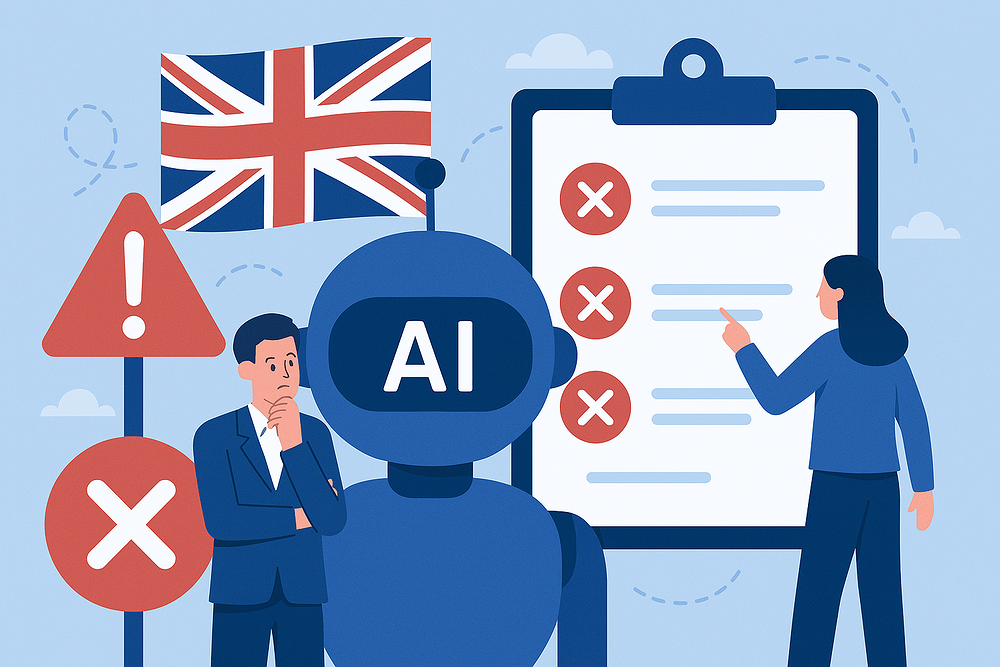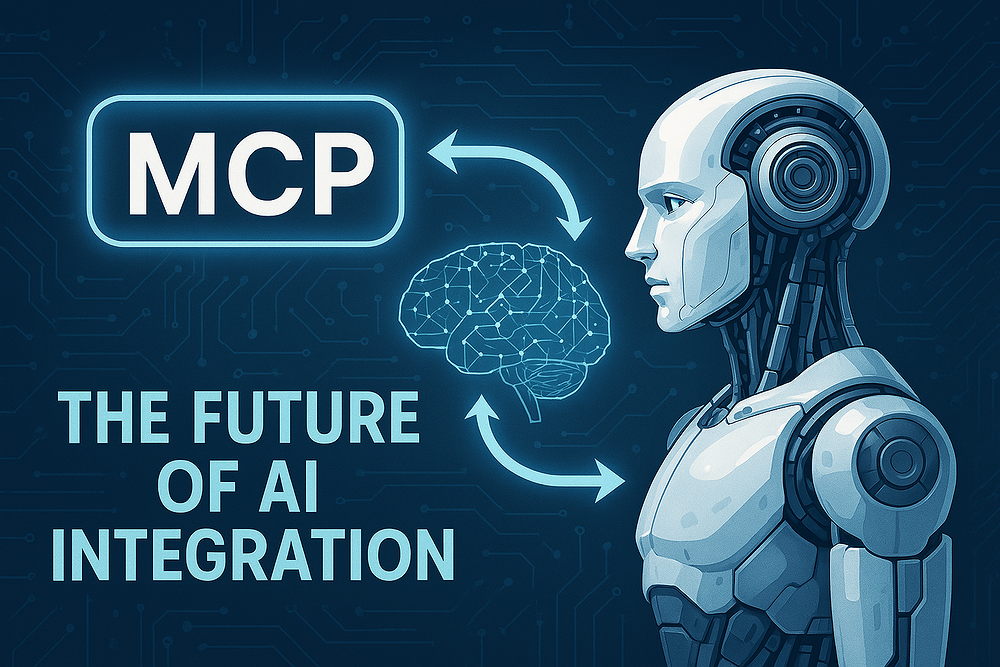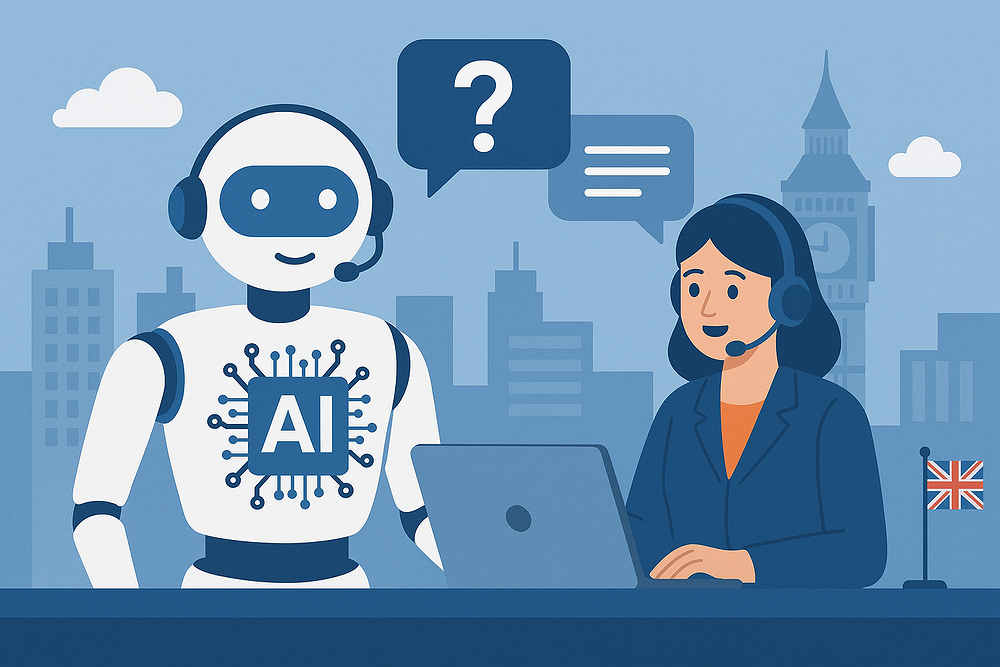AI Integration Mistakes UK Businesses Make (and How to Avoid Them)

Artificial Intelligence (AI) has quickly evolved from being a buzzword to becoming a strategic advantage for businesses of all sizes across the UK. However, integrating AI into business operations isn't without its challenges. Many UK businesses enthusiastically embark on AI initiatives but encounter avoidable mistakes, resulting in wasted resources, poor return on investment, and even customer dissatisfaction.
Here are some common AI integration pitfalls that UK businesses face, along with practical advice on how to sidestep these issues to ensure your AI projects deliver tangible benefits.
Mistake 1: Unclear Objectives and Expectations
One of the biggest mistakes businesses make is jumping into AI projects without clearly defined objectives. AI isn't magic—it needs a precise goal to be effective. Without clearly defined targets, your project can quickly become directionless, absorbing resources without delivering meaningful outcomes.
How to Avoid This:
- Clearly articulate the business problem you're aiming to solve. Are you trying to automate customer service, predict sales trends, or improve operational efficiency?
- Set measurable goals to assess progress and effectiveness. For example, reduce customer response times by 30% or increase sales forecast accuracy by 20%.
Mistake 2: Ignoring Data Quality
AI is only as good as the data it uses. UK businesses often underestimate the importance of clean, high-quality data. Poor data can lead to inaccurate outcomes, biased algorithms, and flawed decision-making.
How to Avoid This:
- Regularly audit and clean your data before deploying AI systems.
- Invest in data governance to ensure data integrity and consistent standards across your business.
- Consider hiring or consulting with a data specialist to establish robust data management practices.
Mistake 3: Overlooking User and Customer Experiences
AI projects sometimes overlook the end-user or customer perspective, focusing too heavily on technical feasibility rather than practical usability. If users find your AI solution confusing, intrusive, or impersonal, you risk damaging customer relationships rather than enhancing them.
How to Avoid This:
- Engage end-users early in the project planning phase. Conduct user interviews or focus groups to understand their needs and expectations.
- Continuously test and refine your AI solutions based on real-world user feedback.
- Ensure AI applications enhance, not detract from, the overall customer experience.
Mistake 4: Underestimating Costs and Resources
Many businesses significantly underestimate the true cost and resources required for effective AI integration. From initial setup and customisation to ongoing maintenance and updates, these hidden costs can quickly spiral out of control.
How to Avoid This:
- Plan your AI integration with a comprehensive budgeting approach. Factor in initial setup, training, ongoing support, and maintenance costs.
- Consider starting with smaller, pilot projects to better understand the real resource requirements before scaling up.
Mistake 5: Lack of Staff Training and Awareness
Implementing AI often means changes to workflows and employee roles. Without adequate training, staff may resist adoption, misuse new tools, or fail to capitalise on AI's full potential.
How to Avoid This:
- Develop comprehensive training programmes that clearly explain how AI solutions improve daily tasks and benefit the overall business.
- Provide ongoing support and resources for continuous learning, ensuring staff feel confident and empowered by AI rather than threatened by it.
Mistake 6: Ignoring Ethical Considerations
As AI applications become increasingly sophisticated, businesses must carefully consider ethical implications, such as privacy concerns and algorithmic bias. Ignoring these issues can harm your reputation and lead to legal repercussions.
How to Avoid This:
- Adopt transparent and ethical AI practices, ensuring your AI solutions comply with UK data protection regulations, including GDPR.
- Regularly review and assess your AI systems for potential biases or ethical issues, engaging with external experts where necessary.
Mistake 7: Trying to Do Everything Internally
While it's tempting to handle AI integrations entirely in-house, most businesses don't have the necessary expertise in AI technologies, data science, and algorithm design. Attempting complex AI projects without external expertise can lead to delays, technical issues, and suboptimal results.
How to Avoid This:
- Partner with reputable AI integration specialists who understand your industry and can offer proven strategies tailored to your business.
- Leverage the expertise of external consultants for training, ongoing support, and knowledge transfer to your internal team.
Mistake 8: Treating AI as a One-Time Project
AI integration isn't a 'set-and-forget' scenario. The technology, your business, and the competitive landscape are continually evolving. A failure to regularly update, improve, and adapt AI systems can quickly diminish their value.
How to Avoid This:
- Set up processes for regularly reviewing the performance and outcomes of your AI systems.
- Stay updated with new developments and technologies, ensuring your solutions remain competitive and relevant.
- Encourage a culture of continuous improvement and innovation around AI within your business.
Mistake 9: Not Planning for Scalability
Many UK businesses successfully launch small-scale AI pilots but struggle to scale these up to deliver broader organisational impact. Without scalability, the potential of your AI solutions remains severely limited.
How to Avoid This:
- Design your AI projects with scalability in mind from the outset. Ensure your technical infrastructure, resources, and management support are aligned with future growth.
- Clearly outline a phased approach for scaling, with defined milestones to evaluate progress and adjust as needed.
Mistake 10: Neglecting Data Security
With AI heavily reliant on data, cybersecurity becomes paramount. Neglecting data security can expose your business to significant risks, including breaches, data theft, and reputational damage.
How to Avoid This:
- Prioritise robust security measures, including data encryption, secure storage solutions, and rigorous access control protocols.
- Regularly conduct cybersecurity assessments and update your defence strategies to protect sensitive information.
Conclusion
Integrating AI into your business is an exciting, potentially transformative endeavour. By understanding and proactively addressing these common mistakes, UK businesses can significantly increase their chances of successful, beneficial AI integration. Approach your AI journey strategically, with clear goals, ethical considerations, user engagement, and ongoing refinement, to ensure AI adds lasting value to your organisation.
Taking these steps can position your business not just to succeed today but to thrive in an increasingly AI-driven future.
Talk to us about your next project
Our team of experts is ready to help bring your ideas to life with solutions tailored to your business.
Get in Touch
